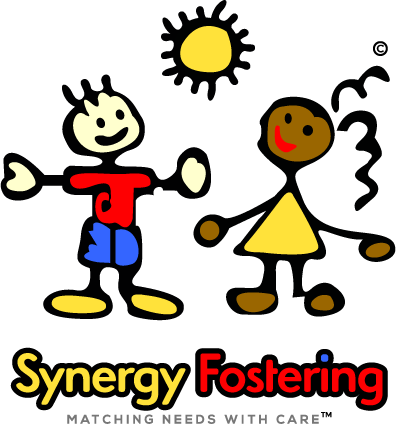Find the Right Type of Fostering for You
Every child has unique needs — and that’s why fostering isn’t one-size-fits-all. At Synergy Fostering, we offer different types of placements to match your lifestyle, experience, and the support you can provide.


Why Different Types Matter
Common Types of Foster Placements
As a foster carer, you can choose from several placement types depending on your availability, skills, and preferences. Here’s a quick overview of the main options available:

Short-Term Fostering
Short-term fostering provides a safe and caring home for children who need support during a difficult time. This can last from a few days to several months, while plans are made for their future.
Short-term fostering provides a safe and caring home for children who need support during a difficult time. This can last from a few days to several months, while plans are made for their future.
Sometimes, children come into care suddenly, often in crisis situations, and need a home right away—day or night. Foster carers play a vital role in offering stability and reassurance, even with little notice or background information. It takes patience, understanding, and a calm approach to help a child who may be feeling scared or confused.
Short-term foster care offers children the safety and support they need while decisions are made about what’s best for them in the long run.

Long-Term Fostering
Long-term fostering is for children who aren’t able to return to their birth families and are unlikely to be adopted. In these cases, foster carers provide a stable, loving home where a child can grow up feeling safe, supported, and part of the family—often until they reach adulthood.
Long-term fostering is for children who aren’t able to return to their birth families and are unlikely to be adopted. In these cases, foster carers provide a stable, loving home where a child can grow up feeling safe, supported, and part of the family—often until they reach adulthood.
This kind of fostering involves a strong, lasting commitment. Carers are carefully matched with children, and there’s often a chance to get to know each other before the placement begins. With the right support and planning, long-term fostering offers children the chance to build lasting relationships and a real sense of belonging.

Respite Fostering
Parent and child fostering involves caring for a young parent—often a teenager—and their baby in your home.As a foster carer, you provide a safe, supportive environment where the parent can learn how to care for their child and build the skills and confidence they need.
Parent and child fostering involves caring for a young parent—often a teenager—and their baby in your home. As a foster carer, you provide a safe, supportive environment where the parent can learn how to care for their child and build the skills and confidence they need.
Your role is to guide and support them, while also observing how they care for their baby. This type of fostering can be incredibly rewarding, as you help keep families together and give both parent and child the best possible start.

Parent and Child Fostering
Parent and child fostering involves caring for a young parent—often a teenager—and their baby in your home. As a foster carer, you provide a safe, supportive environment where the parent can learn how to care for their child and build the skills and confidence they need.
Parent and child fostering involves caring for a young parent—often a teenager—and their baby in your home. As a foster carer, you provide a safe, supportive environment where the parent can learn how to care for their child and build the skills and confidence they need.
Your role is to guide and support them, while also observing how they care for their baby. This type of fostering can be incredibly rewarding, as you help keep families together and give both parent and child the best possible start.

Fostering Children with Additional Needs
Some children need extra support due to physical disabilities, learning difficulties, emotional or behavioural challenges, or mental health conditions.
Some children need extra support due to physical disabilities, learning difficulties, emotional or behavioural challenges, or mental health conditions. Every child is different, and their needs can vary widely.
Foster carers for children with additional needs receive special training and may make adjustments at home to provide the right environment. Whether it’s offering extra time, understanding, or physical support, these carers create safe, patient, and supportive homes where children can thrive.

Caring for Unaccompanied Minors
Some young people arrive in the UK alone, without parents or guardians to care for them. These children often come from conflict-affected areas and may have faced difficult and traumatic journeys.
Some young people arrive in the UK alone, without parents or guardians to care for them. These children often come from conflict-affected areas and may have faced difficult and traumatic journeys.
Foster carers provide a safe, welcoming home where these young people can begin to adjust to a new life. They may need help with learning English, understanding a new culture, and feeling secure while their asylum application is processed. With patience, kindness, and support, foster carers can make a world of difference to a child who is far from home.

Remand Fostering
Remand fostering is for children and young people who are involved in the youth justice system and are waiting for their court case to be resolved.
Remand fostering is for children and young people who are involved in the youth justice system and are waiting for their court case to be resolved. Instead of being placed in custody, some young people are cared for in a foster home—usually because they are not considered a risk to the public.
These young people may have restrictions like a curfew, electronic tag, or conditions to stay at home. They often feel anxious about their situation and need calm, supportive carers who can offer structure, reassurance, and understanding during a difficult time in their lives.
Short-term fostering provides a safe and caring home for children who need support during a difficult time. This can last from a few days to several months, while plans are made for their future.
Long-term fostering is for children who aren’t able to return to their birth families and are unlikely to be adopted. In these cases, foster carers provide a stable, loving home where a child can grow up feeling safe, supported, and part of the family—often until they reach adulthood.
Parent and child fostering involves caring for a young parent—often a teenager—and their baby in your home.As a foster carer, you provide a safe, supportive environment where the parent can learn how to care for their child and build the skills and confidence they need.
Parent and child fostering involves caring for a young parent—often a teenager—and their baby in your home. As a foster carer, you provide a safe, supportive environment where the parent can learn how to care for their child and build the skills and confidence they need.
Some children need extra support due to physical disabilities, learning difficulties, emotional or behavioural challenges, or mental health conditions.
Some young people arrive in the UK alone, without parents or guardians to care for them. These children often come from conflict-affected areas and may have faced difficult and traumatic journeys.
Remand fostering is for children and young people who are involved in the youth justice system and are waiting for their court case to be resolved.

